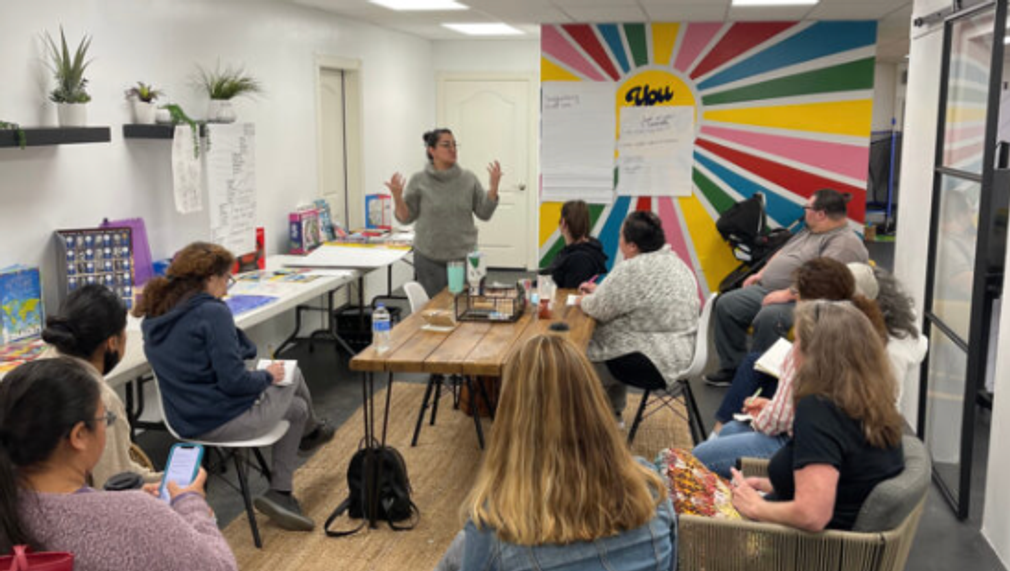Healthy Futures: Physical Health and Mental Wellness for Foster Youth
Healthy Futures: Physical Health and Mental Wellness for Foster Youth provides onsite physical health screenings, mental health therapy, and wellness education to foster-impacted youth in Bithiah’s Transitional Aged Youth (TAY) housing program and resource center. By addressing medical and emotional needs immediately upon placement, the program reduces care delays, builds resilience, and supports long-term stability through trauma-informed, holistic services.

What is the primary issue area that your application will impact?
Support for foster and systems-impacted youth
In which areas of Los Angeles will you be directly working?
San Gabriel Valley
In what stage of innovation is this project, program, or initiative?
Pilot or new project, program, or initiative (testing or implementing a new idea)
What is your understanding of the issue that you are seeking to address?
The issue we seek to address is the significant health disparities faced by foster and systems-impacted youth, particularly those transitioning out of care into independent living. Many of these young people experience barriers to accessing consistent and comprehensive healthcare, including preventive physical health screenings and trauma-informed mental health services. Without reliable access to care, they are at higher risk for untreated health conditions, chronic stress, and emotional trauma, which can impede their ability to thrive. At Bithiah’s Family Services, we understand that holistic health support—including onsite medical and mental health services—is essential to empower these youth, support their well-being, and promote long-term success as they transition to adulthood.
Describe the project, program, or initiative this grant will support to address the issue.
This grant will support the Healthy Futures: Physical Health and Mental Wellness for Foster Youth program, which delivers onsite physical health screenings and trauma-informed mental health services directly to women in Bithiah’s Transitional Aged Youth (TAY) housing program as well as other foster and systems-impacted youth served through our resource center. By embedding holistic healthcare within safe, accessible community and housing environments, the program removes common barriers to care such as transportation, cost, long wait times, and mistrust of medical systems. Many foster youth rely on Medi-Cal, which limits provider options and leads to delays even for routine checkups; Healthy Futures ensures that each foster-impacted youth receives a physical and mental health screening immediately upon placement into a new foster home or entry into our housing program. In addition to screenings, participants receive ongoing wellness education through workshops on nutrition, healthy living, and self-care. Mental wellness is a core element of the program, with participants receiving access to trauma-informed group therapy sessions and individualized therapy provided by graduate-level clinicians trained in culturally responsive care. This integrated approach improves physical health outcomes, strengthens emotional resilience, and supports long-term stability and independence.
Describe how Los Angeles County will be different if your work is successful.
If Healthy Futures succeeds, LA County will see improved well-being and long-term outcomes for 500+ foster-involved youth annually through comprehensive physical and mental health screenings. Stabilized health empowers youth to maintain housing, pursue education or employment, and build support networks. We anticipate a 50% increase in self-rated wellness and a 40% reduction in unmet health needs within six months. By integrating preventive care and destigmatizing mental health, we will cultivate resilient advocates. Long-term, we will expand to additional resource centers across counties, deploy mobile health units in under-resourced neighborhoods, and train peer navigators from program graduates. Embedding holistic healthcare into foster-care transition services will shift systems toward prioritizing integrated, preventive care, ensuring every young person leaves foster care with a secure foundation for independence.
Approximately how many people will be impacted by this project, program, or initiative?
Direct Impact: 300
Indirect Impact: 750